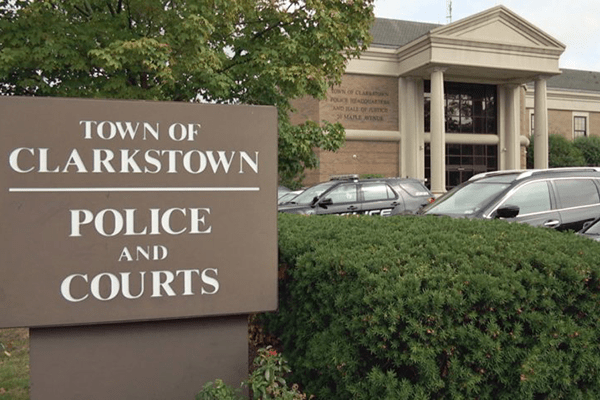|
RCBJ-Audible (Listen For Free)
|
Court May Monitor Tree-Clearing Issue Even Though It Is Not A Part Of The Lawsuit
By Tina Traster
The judge presiding over the case of a Valley Cottage resident who built an addition without a permit has vowed to monitor the outcome of a proposed global settlement between the homeowner and the Town of Clarkstown even though some aspects of the pending agreement are beyond the lawsuit filed in Town Court.
Town Deputy Attorney Paul Schofield, and Donald Feerick, the attorney who is representing homeowner Edward Teitel agreed in court on Tuesday to submit the global settlement on or before Aug. 24th, when the case will be heard again by Town Justice Scott Ugell.
“The court will keep this case open until there is a signed agreement,” said Ugell. “But it won’t be concluded until all the steps are taken. We are leaving nothing to chance.”
The parties say they are close to a settlement on issues related to land disturbance and storm water management and efforts to obtain a “certificate of occupancy” for the second floor that was built without a permit for Teitel’s home at 20 Old Stone Road atop of West Hook Mountain.
The town’s suit, filed January 22, says the defendant failed to comply with erosion and sediment control measures. The suit also says the defendant did not submit a site plan, erosion plan, or survey. On Nov. 16th, 2020, the town issued a Stop Work Order and Notice of Violation under provisions of the town’s Stormwater Management code. The order called for the property owner to maintain, repair, and install silt fences, issue a site plan, and submit a survey.
What remains unresolved – and is not addressed in the town’s lawsuit — is how the homeowner will remediate or replace a swath of trees removed from both his property and town-owned parkland. In March, the Clarkstown Police Department opened an investigation as to the allegation of removal of trees on Town property. Town Attorney Leslie Kahn would not comment on the investigation, but said the town is still awaiting the results.
Ugell balked when Feerick asked for a third adjournment in the case, indicating frustration with an ongoing lack of resolution between the town and the defendant that stretches back to the first hearing in April.
“We’ve exchanged proposals and there is an opportunity for a conclusion,” said Feerick, who pointed out he is negotiating with the town on issues that are both before the court and those that are “beyond its jurisdiction.”
“All the documents have been reviewed and accepted except one open item, a railing on the premise, in order for the (certificate of occupancy) to be resolved,” Feerick added.
Feerick told the court his client has hired an arborist and a landscape architect to address the tree remediation. The attorney said, “we take the opposite position to the town” but added his client is “finalizing a mutual agreement and is working toward a solution.” Town deputy attorney Schofield confirmed the town is close to a settlement.
The issue was originally brought to light by Clarkstown resident Marvin Baum and a growing group of activists who claimed the homeowner had removed more than 100 trees from land on West Hook Mountain. The land was purchased under the Town’s Open Space Initiative. Funds from the town’s $22 million open space bond in 2003 were used to purchase the $1.7 million property. Clarkstown voters passed the referendum in November 2000 for the acquisition of open space. The West Hook Mountain property was cited as one of the driving forces behind the open space bond referendum.
The Town of Clarkstown code states it has a vital interest in the planting and preservation of trees. Trees stabilize the soil on slopes, thereby preventing erosion, siltation, and flooding. They control water pollution, purify the air by generating oxygen, mitigate noise and reduce energy consumption by providing shade. The code states that destruction and removal of trees causes increased costs to the town for remediating drainage control, impairing the value of both improved and unimproved property.
Clarktown town code imposes a minimum fine of $500 and up to of $1,500 and/or community service in the amount of 30 days for violation of the town’s tree ordinance. The town can also force the violator to remediate damage by replacing the trees. Each tree is a separate offense under the code.













